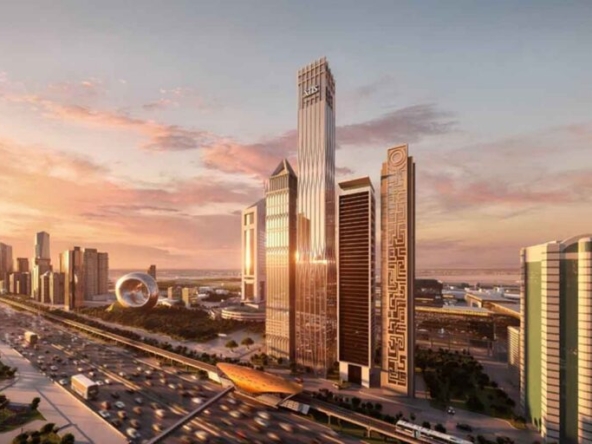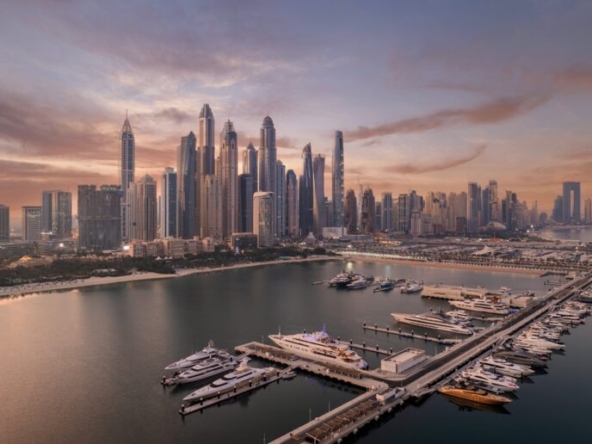Joint ventures (JVs) are strategic alliances between two or more parties that pool resources to develop or manage real estate projects, sharing both risks and returns. In Dubai’s fast-paced and capital-intensive property market, joint ventures have emerged as a powerful model—especially as the city continues to attract global investment, high-net-worth individuals, and institutional partners.
Why Joint Ventures Are Booming in Dubai’s Property Sector
1. Bridging Capital and Local Expertise
Dubai’s real estate landscape is heavily reliant on foreign direct investment (FDI). International developers often lack localized knowledge, regulatory insights, or land ownership rights. Through joint ventures with UAE-based entities, these developers gain:
-
Legal and operational ease
-
Land ownership access via local sponsors
-
Government support through recognized partnerships
Conversely, local companies benefit from foreign capital, technical expertise, and global branding.
2. Risk Mitigation and Resource Sharing
Given the scale and complexity of Dubai mega-projects like Dubai Creek Harbour, Expo City, and Emaar South, joint ventures reduce exposure and increase agility. Developers share:
-
Financial investment
-
Construction and marketing burdens
-
Operational and legal risks
This setup becomes attractive during market uncertainties or interest rate fluctuations.
3. Government Backing and Regulatory Incentives
The Dubai government promotes joint ventures as a means to:
-
Accelerate infrastructure development
-
Diversify the economy beyond oil
-
Achieve UAE Vision 2031 and Smart Dubai goals
Key enablers include:
-
Free zone laws allowing 100% foreign ownership in certain areas
-
Favorable tax regimes
-
Speedy regulatory approvals for JV-led developments
High-Profile Joint Venture Projects in Dubai
Emaar & Meraas: Dubai Harbour and Dubai Hills Estate
These projects are joint ventures between Emaar Properties and Meraas Holding, blending Emaar’s global real estate acumen with Meraas’s urban lifestyle vision. The result? Iconic communities featuring luxury villas, world-class retail, green parks, and integrated healthcare and education.
Nakheel & Centurion: Dragon City Expansion
This collaboration showcases how mid-sized players can enter Dubai’s lucrative market through JV models. Nakheel brought land and master planning expertise, while Centurion provided investment and construction execution.
Sobha Realty & Local Authorities: Sobha Hartland
Sobha Realty collaborates with local municipalities and service providers to offer sustainable and luxury developments along the Dubai Water Canal. This joint approach ensures seamless delivery and infrastructure alignment.
Benefits for Stakeholders in Joint Ventures
For Investors and Developers
-
Market entry without full capital commitment
-
Asset-light expansion opportunities
-
Scalability for large-scale, mixed-use developments
For Government and Authorities
-
Urban growth aligned with strategic masterplans
-
Accelerated economic diversification
-
Efficient land use and infrastructure integration
For Buyers and End-Users
-
High-quality, well-financed developments
-
Timely project completions
-
Variety of products catering to expatriates, locals, and investors
Trends Shaping the Future of Joint Ventures in Dubai
Smart and Sustainable Developments
Joint ventures are now focusing on smart city integration, including AI-driven home systems, EV infrastructure, and LEED-certified construction. Dubai’s ambition to be a global green leader pushes JV developers to adopt eco-conscious planning.
Hospitality and Branded Residences
JV models between real estate developers and hospitality brands (e.g., Marriott, Address, Banyan Tree) are booming. These partnerships create high-end serviced residences with hotel-level amenities and guaranteed ROI for investors.
Digital Real Estate Platforms and Blockchain
Blockchain-backed joint ventures are emerging to handle fractional ownership, digital escrow, and tokenized real estate assets. These tech-driven collaborations are positioning Dubai as a Web3 real estate pioneer.
Legal Framework Governing Joint Ventures in Dubai
Understanding Structures: LLCs, SPCs, and MoUs
The most common legal structures include:
-
Limited Liability Company (LLC) – Ideal for onshore ventures with shared equity
-
Special Purpose Company (SPC) – Used for asset-specific developments
-
Memorandum of Understanding (MoU) – Outlines the initial JV framework before formal incorporation
Free Zone vs Mainland JV Laws
Dubai offers both free zone jurisdictions (like DIFC, DMCC) and mainland regulations under the Dubai Department of Economic Development (DED). Investors must evaluate:
-
Ownership restrictions
-
Profit repatriation terms
-
Land use regulations
Role of Dubai Land Department (DLD) and RERA
All real estate JVs must register with the DLD. For off-plan and residential projects, RERA (Real Estate Regulatory Authority) ensures:
-
Escrow account setup
-
Developer registration
-
Consumer protection measures
Key Considerations Before Entering a Real Estate Joint Venture in Dubai
1. Due Diligence
-
Legal vetting of the partner’s background
-
Financial audits
-
Market feasibility studies
2. Profit-Sharing Models
Clear agreements on:
-
Revenue splits
-
Cost allocations
-
Exit strategies
3. Governance Structures
Defining:
-
Decision-making hierarchies
-
Conflict resolution mechanisms
-
Reporting transparency
The Impact of Joint Ventures on Dubai’s Real Estate Landscape
Joint ventures are transforming Dubai’s real estate into a more collaborative, resilient, and globally attractive sector. They empower:
-
Local developers to scale quickly
-
Foreign entities to reduce entry barriers
-
Consumers to access diversified and trustworthy projects
The model is no longer limited to mega-developers—SMEs, tech firms, and family offices are also entering the arena through creative JV models, particularly in mid-market residential and commercial real estate.
Conclusion: Joint Ventures as Catalysts of Dubai’s Property Innovation
Dubai’s real estate boom is entering a new phase of innovation and maturity, and joint ventures are at its core. As the emirate gears up for global events, regulatory liberalization, and smart infrastructure rollouts, JVs will continue to shape communities, skylines, and investment opportunities.
From iconic beachfront towers to suburban wellness enclaves, the joint venture model is proving to be the most agile, inclusive, and forward-looking approach to sustainable urban development in Dubai.



